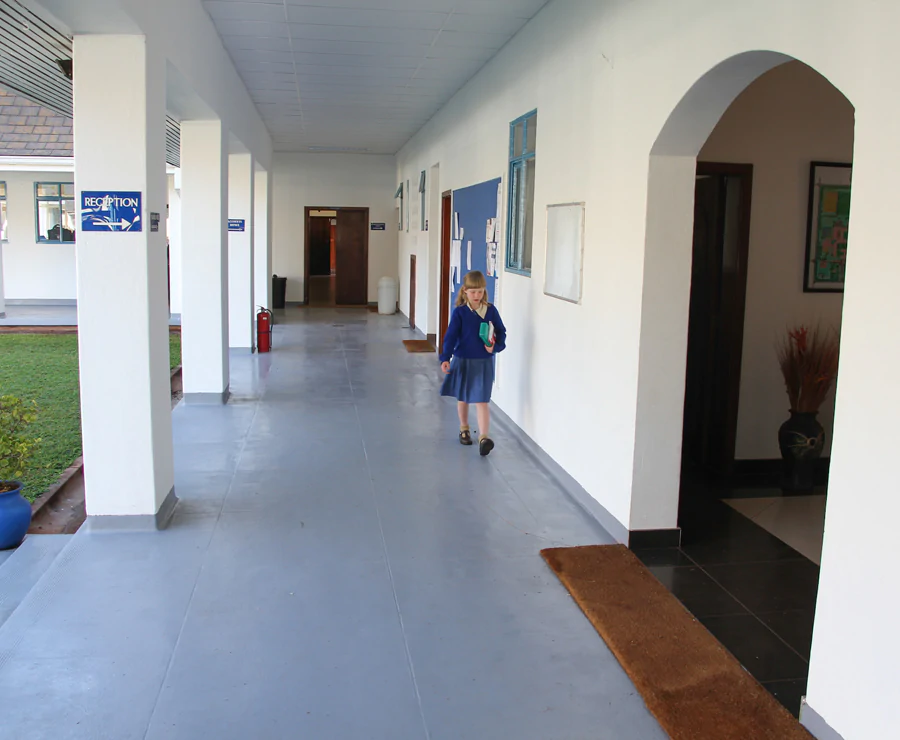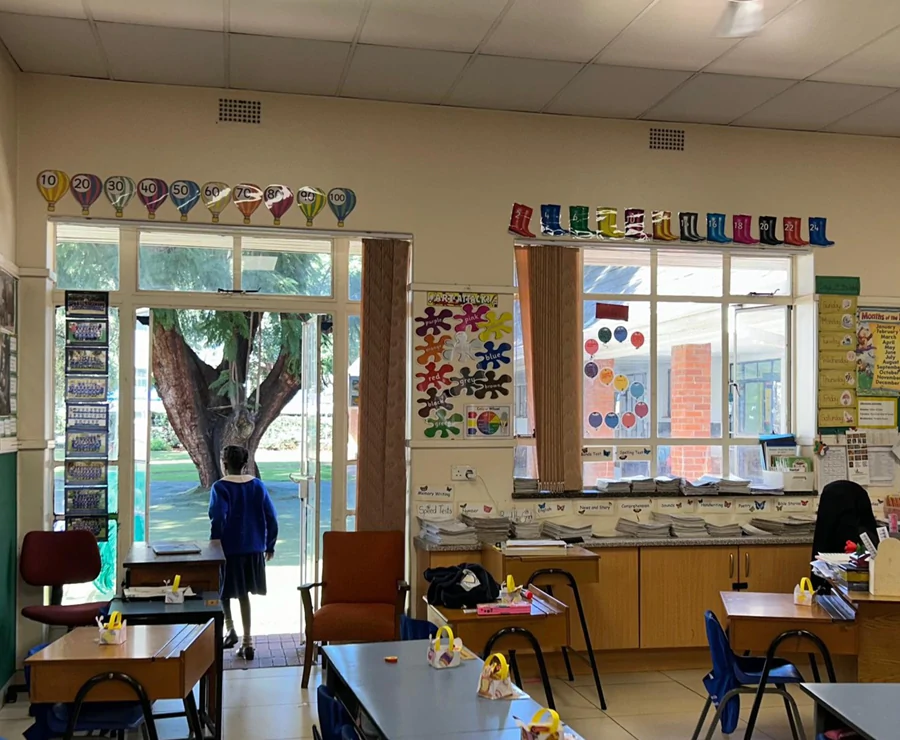At our institution, we offer a comprehensive educational journey designed to nurture and develop young minds at every stage. Our school is divided into three main levels, each tailored to meet the unique needs of students as they progress through their academic careers.
At each level, we are committed to providing a holistic education that fosters the intellectual, social, and emotional development of every student. Our dedicated staff works closely with students and parents to ensure a rewarding and enriching educational experience.
The Bishopslea remedial section is overseen by Ms. Shupi Maritinyu. This specialized department comprises of two classrooms: one dedicated to infants, and the other to students in grades 3 to 7.
Ms. Maritinyu actively engages with the pupils, who come from their respective classes to the designated remedial classrooms. The range of tuition provided varies from personalized one-on-one sessions to small group classes with a maximum of 10 pupils per session.
Students facing challenges in English (reading, writing and communication skills) and Mathematics are identified by their class teachers and subsequently referred for remedial support. The primary goal of this intervention is to aid students in overcoming their learning difficulties.
Once a student has successfully grasped a concept, there is no further need for ongoing assistance. This approach ensures that pupils receive tailored support and are equipped with the necessary skills to excel academically.
The Bishopslea ICT department, headed by Mrs. Hazel Dahwa, provides ICT lessons from ECD to Grade 7. The department boasts a computer lab with 27 all –in-one iMac computers. These are loaded with educational applications and full Internet access. Every pupil has access to a computer for 1 lesson per week. For ECD – Grade 4, lessons are closely related to the curriculum taught in the classroom. Activities done in the lab are for reinforcement of bonds, times tables, spelling and grammar in a fun and relaxed manner. Pupils are also introduced to coding using Scratch.
The upper classes from Grade 5 – 7 are taught how to use the basic Microsoft office packages (i.e. Word, Excel, Power Point, Database basics and file management). Practical and written theory exams are taken at the end of the 7th year, for which pupils are awarded a certificate to provide a benchmark for high school ICT training.
ICT is utilized throughout the school through the use of iPads and laptops through interactive projectors as teaching tools
Shona is an integral part of the school curriculum, and taught from ECD through to grade 7. From grade 5 the classes are split into L1 and L2. At ECD level the subject involves the use of Shona games and songs. Pupils also learn basic Shona greetings.
Grade 1 and 2 are taught more advanced greetings and everyday vocabulary words.
Shona exams are written from Grade 3 onwards. Shona exam marks go on the mid-year and end of year reports.
We have also introduced a” Shona Word A Day” programme, where pupils get one Shona word everyday as part of their homework. The pupils are then tested on the accumulated words at the end of the term as an Inter-House test.
Our Cultural Evening is the highlight of the year. Every first term the Grade 6 classes get to perform a Shona play on stage. The play showcases traditional aspects of the Shona culture. The Cultural Evening is a lot of fun and is well supported by the parents.


At our school, we offer a range of subjects aligned with the Zimbabwean primary school curriculum to provide a well-rounded education. In Mathematics, students develop essential numeracy skills, understanding concepts such as arithmetic and basic geometry. Our English curriculum enhances literacy through reading, writing, and speaking activities, helping students build a strong command of the language.
In addition, our content subject introduces students to basic scientific principles, encouraging curiosity about the natural world through hands-on experiments. We also offer Shona language classes to promote cultural heritage and linguistic skills, helping students appreciate their native language and culture. This holistic approach ensures our students are academically proficient and culturally enriched.